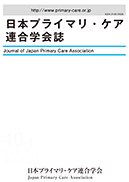Volume 44, Issue 3
Displaying 1-5 of 5 articles from this issue
- |<
- <
- 1
- >
- >|
-
2021Volume 44Issue 3 Pages 105
Published: September 20, 2021
Released on J-STAGE: September 22, 2021
Download PDF (130K)
-
2021Volume 44Issue 3 Pages 106-115
Published: September 20, 2021
Released on J-STAGE: September 22, 2021
Download PDF (434K)
-
2021Volume 44Issue 3 Pages 116-127
Published: September 20, 2021
Released on J-STAGE: September 22, 2021
Download PDF (428K)
-
2021Volume 44Issue 3 Pages 128-131
Published: September 20, 2021
Released on J-STAGE: September 22, 2021
Download PDF (448K) -
2021Volume 44Issue 3 Pages 132-134
Published: September 20, 2021
Released on J-STAGE: September 22, 2021
Download PDF (460K)
- |<
- <
- 1
- >
- >|
